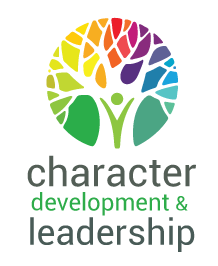Text Types and Purposes
- CCSS.ELA-Literacy.CCRA.W.1 Write arguments to support claims in an analysis of substantive topics or texts using valid reasoning and relevant and sufficient evidence.
- CCSS.ELA-Literacy.CCRA.W.2 Write informative/explanatory texts to examine and convey complex ideas and information clearly and accurately through the effective selection, organization, and analysis of content.
- CCSS.ELA-Literacy.CCRA.W.3 Write narratives to develop real or imagined experiences or events using effective technique, well-chosen details and well-structured event sequences.
Production and Distribution of Writing
- CCSS.ELA-Literacy.CCRA.W.4 Produce clear and coherent writing in which the development, organization, and style are appropriate to task, purpose, and audience.
- CCSS.ELA-Literacy.CCRA.W.5 Develop and strengthen writing as needed by planning, revising, editing, rewriting, or trying a new approach.
- CCSS.ELA-Literacy.CCRA.W.6 Use technology, including the Internet, to produce and publish writing and to interact and collaborate with others. Research to Build and Present Knowledge
- CCSS.ELA-Literacy.CCRA.W.7 Conduct short as well as more sustained research projects based on focused questions, demonstrating understanding of the subject under investigation.
- CCSS.ELA-Literacy.CCRA.W.8 Gather relevant information from multiple print and digital sources, assess the credibility and accuracy of each source, and integrate the information while avoiding plagiarism.
- CCSS.ELA-Literacy.CCRA.W.9 Draw evidence from literary or informational texts to support analysis, reflection, and research.
Range of Writing
- CCSS.ELA-Literacy.CCRA.W.10 Write routinely over extended time frames (time for research, reflection, and revision) and shorter time frames (a single sitting or a day or two) for a range of tasks, purposes, and audiences.Note on range and content in student writing: To build a foundation for college and career readiness, students need to learn to use writing as a way of offering and supporting opinions, demonstrating understanding of the subjects they are studying, and conveying real and imagined experiences and events. They learn to appreciate that a key purpose of writing is to communicate clearly to an external, sometimes unfamiliar audience, and they begin to adapt the form and content of their writing to accomplish a particular task and purpose. They develop the capacity to build knowledge on a subject through research projects and to respond analytically to literary and informational sources. To meet these goals, students must devote significant time and effort to writing, producing numerous pieces over short and extended time frames throughout the year.

